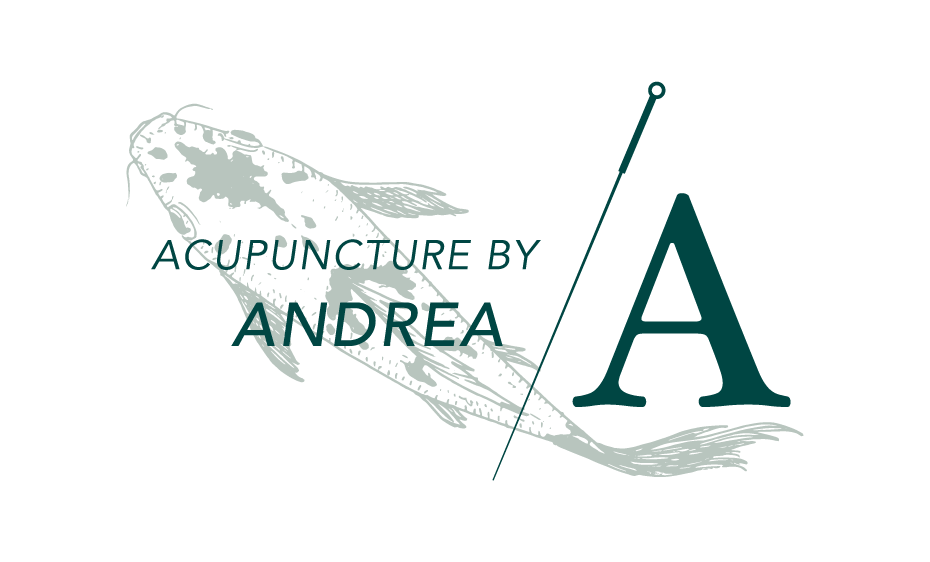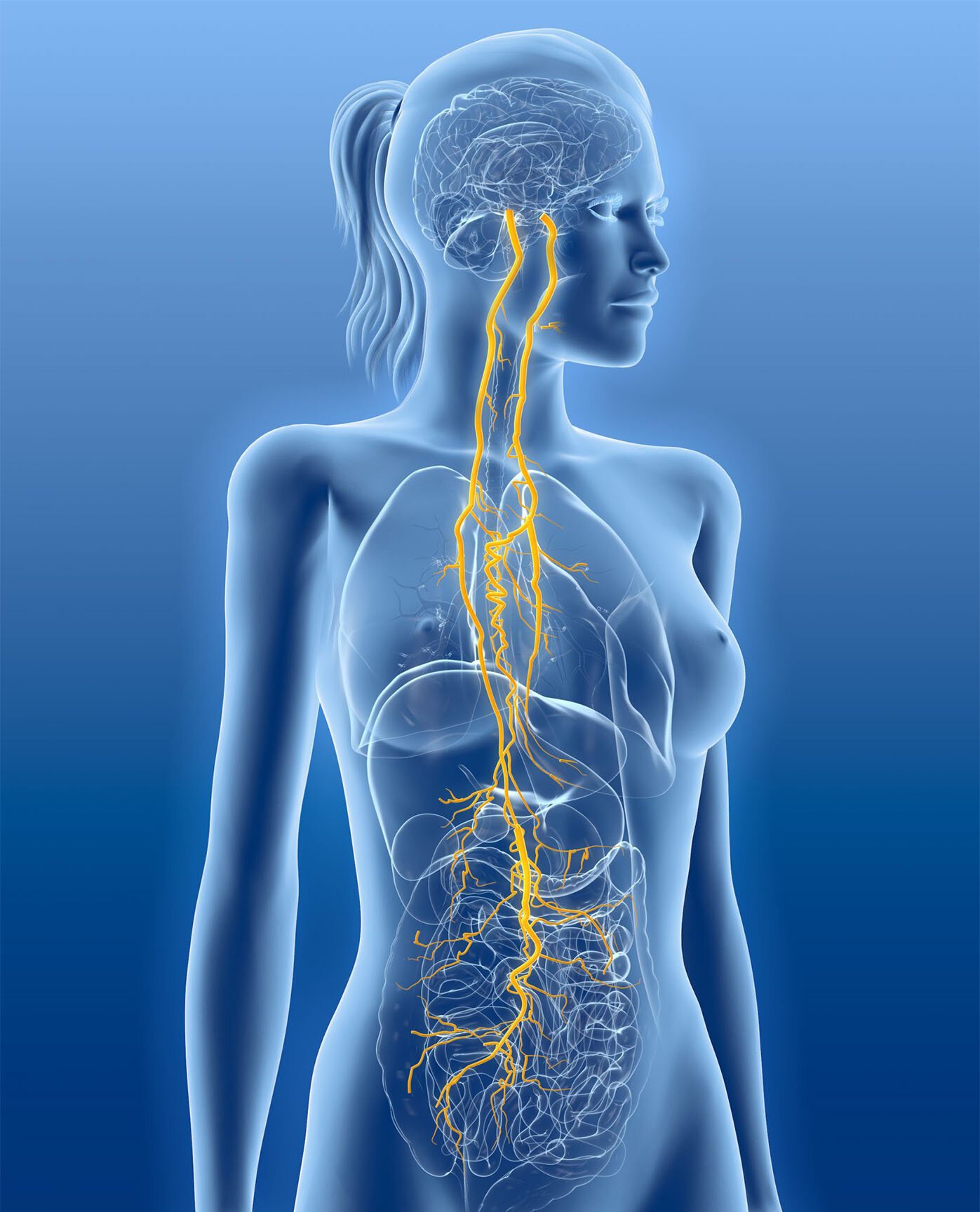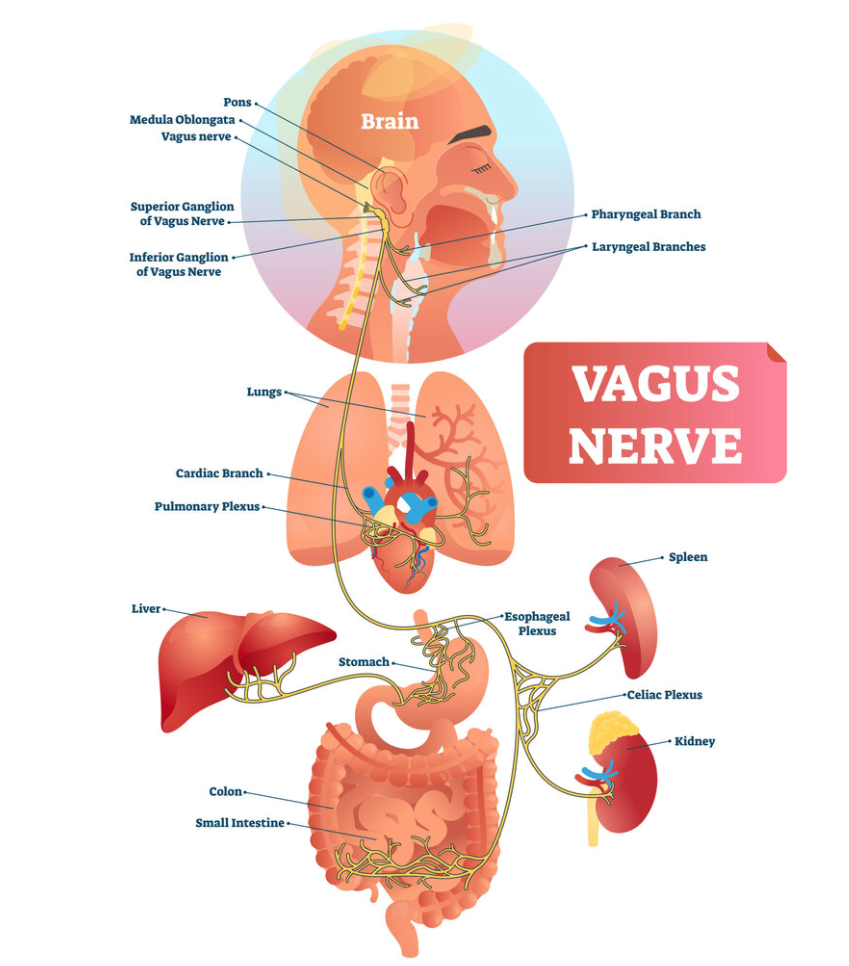The Vital Vagus
Recently there’s been a lot of news about stress and anxiety originating in the digestive system and how these problems can be healed through acupuncture and homeopathic medicine.
One area of your body that has a direct connection with the digestive system is the vagus nerve. Never heard of it? Keep reading to find out how this nerve can be treated via acupuncture and deep breathing to help alleviate stress and regulate bodily functions that are in discord.
What is the Vagus Nerve?
Vagus means wandering in Latin. and it is the longest cranial nerve in the body. This nerve relates to such issues as TMJ and swallowing, epilepsy, stress, depression, anxiety, heart rate fluctuations, and PTSD.
Historically referred to as the pneumogastric nerve, the Vagus nerve interacts with the parasympathetic control of the heart, lungs, and digestive tract. It is actually made up of two nerves, the left and right vagus nerves, but they are referred to collectively.
A recent study in Switzerland found that the most important function of the vagus nerve is bringing information from the inner organs (the gut, liver, heart, and lungs) to the brain. This suggests that the inner organs are major sources of sensory information for the brain. The digestive system has the largest surface area of any of our bodily systems and might be the most important sensory area to the vagus nerve.
Vagal tone
Vagal tone is the measurable activity of the vagus nerve. The vagal tone is measured non-invasively via heart rate and heart rate variability. The vagus nerve is the key nerve pathway of the parasympathetic division of the autonomic nervous system (ANS). The ANS is responsible for the body's relaxing response, like after a stressful situation. The ANS is also responsible for breathing, digestion, heart rate, sneezing and other bodily functions over which we don't have full conscious control.
A low vagal tone means the vagus nerve isn't functioning as it should. This may lead to a heightened stress response which becomes chronic, possibly resulting in depression, anxiety, gut ssues and inflammation.
Why is My Vagus Nerve Out of Whack?
During stressful times (these days that means normal aspects of daily life such as traffic, work, watching the news), the parasympathetic response will be activated along with the vagus nerve. This can cause syncope which is a temporary loss of consciousness due to a drop in blood pressure, and is usually manifested as fainting or dizziness, sweating, blurred vision, ear ringing and clammy or cold skin. Syncope affects women and children most often. It can occur or re-occur during stressful situations or seemingly at random.
The Vagus Nerve-Liver Health connection
Depression is another area clinical researchers are looking at treating through the vagus nerve. In Chinese medicine depression is centered in the liver. When the liver is stagnant, depression may result. Not surprisingly, the vagus nerve reaches to and affects the liver.
Western medical psychiatrists and psychologists have successfully applied neurostimulation and vagus nerve stimulation (VNS) to treating depression. A device is fitted under the skin of the patient’s chest or neck to work on treatment resistant depression. This device sends pulses of electrical stimulation to the vagus nerve, which goes through the neck, and ends in the chest and abdomen, a cavity largely filled and ruled by the liver. In studies, patients have reported a lessening of depression and feeling “lighter” after these treatments. In Traditional Chinese Medicine, we elicit the same response with acupuncture needles. The treatment could be distal—not on the mid-section or over the liver—but with points in the toes and the hands that send signals to the organ to release and relax. This disinhibits what feels stuck or “depressing”.
The vagus nerve-liver connection is at work in several other health issues. In Chinese medicine, any condition that results in shaking (referred to as “wind”) is associated with the liver. Epilepsy is a neurological disorder causing seizures and convulsions that include intense shaking.
Have you ever had low blood sugar? You might not have been diagnosed with it, but maybe you haven’t eaten for awhile and you’re standing around when you start to feel light-headed and shaky? This low blood sugar is from the lack of production of glucose in the liver. The vagus nerve is responsible for the signaling and just like in an epileptic episode, shaking is the visible outcome. Much vagus nerve research has been done on epilepsy and how to diffuse side effects of episodes. This research will prove to be helpful in treating low blood sugar and it’s resulting “wind”.
Anxiety, Acupuncture and the Vagus Nerve
Stimulation of the vagus nerve can help lower your heart rate and help with anxiety and related symptoms such as sweaty hands, dry mouth, and shallow breathing. The vagus nerve sends and receives messages to/from the lungs, releasing a variety of anti-stress enzymes and calming hormones such as acetylcholine, prolactin, vasopressin, and oxytocin to relax and temporarily slow the heart rate.
Acupuncture accesses these calming hormones through activation of specific points that stimulate the vagus nerve. During treatment you relax and allow your system to carry these natural endorphin pain relievers throughout the body. When you are in a relaxed state, the healing process can be directed to the main source of pain or your original complaint, rather than working through a stressed and unrelaxed body. This is why you should not eat just before your acupuncture session. Your gut is connected to the vagus nerve, as discussed above. If the body is concentrating on digestion, its ability to focus on relaxation is weakened, as is the digestion process.
Acupuncture is essential in treating the depression, anxiety and stress of your day to day with traditional Chinese medicine protocols and treatments as well as modern adaptations. The Yamamoto New Scalp Acupuncture protocol deals directly with the cranial nerves and the vagus nerve. Because the vagus nerve is connected to so many organs and areas in your body, as well as serving as a messenger to inform these organs to react to the area of need, you can see why it would work so well. The fact that Chinese medicine in its 3–5000-year history was able to connect the feelings of depression and anxiety with the vagus nerve and its related organs is phenomenal. Then to have modern Japanese doctors find an even more finely tuned treatment plan for these connections is a testament to humans and their drive to find the answer to healing.
Stimulating the Vagus Nerve At Home
Try some vagus nerve exercises to rewire your brain away from anxious thoughts and calm your nerves (starting with the vagus!). This instructional video is great and has gotten over 1.5 million views on Youtube!
We hope you enjoyed this article on the vagus nerve and its importance in the foundational functioning of your body. Keep an eye out for next month’s blog when we discuss the vagus nerve and digestion, elimination, and neck pain.


